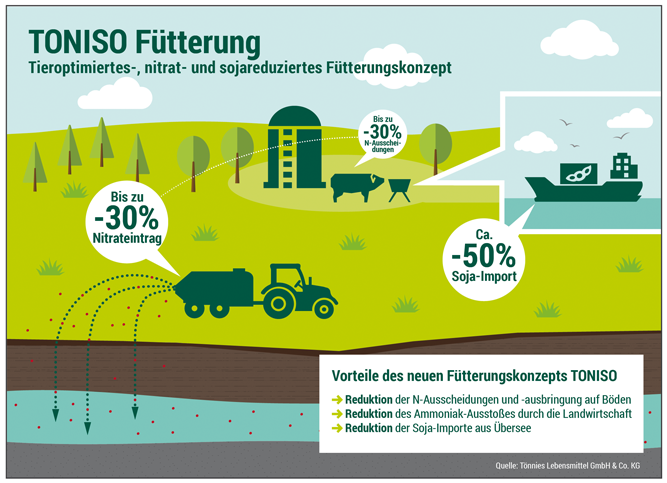Soy imports drop by 25%

Tönnies has been promoting an animal-optimized, nitrate and soy-reduced feeding concept - TONISO for short - on farms since 2017. The aim is to significantly reduce the protein content in pig feed and thereby reduce emissions at the same time. The latest soy import statistics to Germany show that TONISO has arrived in the pigsty. As can be seen from a response from the federal government to a small question from the Bundestag parliamentary group of Bündnis 90 / Die Grünen, soy imports have declined by more than 25 percent in recent years.
"The TONISO feeding shows an effect," says Dr. Wilhelm Jaeger, head of the agriculture department at Tönnies. "We are pleased that our efforts are bearing fruit and that we can thus make a major contribution to the sustainable development of livestock husbandry in Germany." Together with the Chamber of Agriculture of North Rhine-Westphalia, Tönnies pushed the topic and initially 60 to 70 farms at TONISO- Feeding accompanied. Gradually, more companies were added. "In the meantime, most of our farms have switched to this protein-reduced feeding method." And the success speaks for itself: As the federal government has now announced, imports of soybeans and meal to Germany were previously around 6 million tons. Now only 2017 million tons of soy were imported between 2019 and 4,4, which is more than 25 percent less than in the same period of the previous year.
The Tönnies Group sees its plans confirmed and would like to continue on this path. “There is further savings potential in this topic. We are sure that further sustainability goals can be achieved by lowering the soy content, ”says Dr. Wilhelm Jaeger. Because this feeding method not only relieves the environment, but also promotes the health of the animals.

